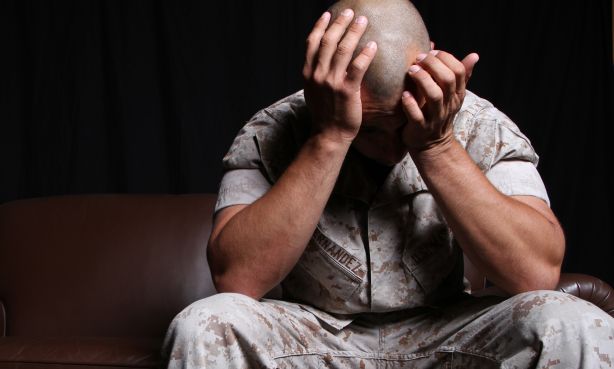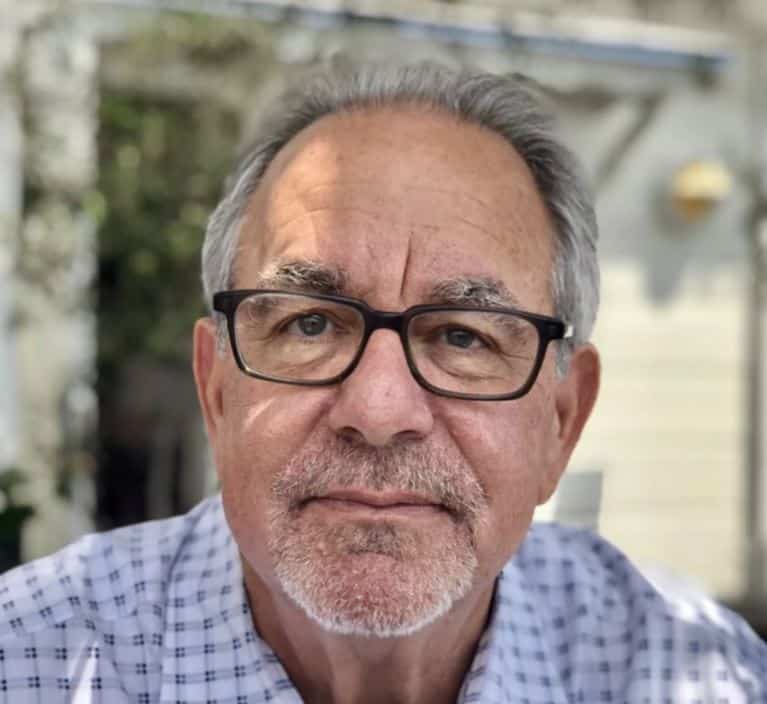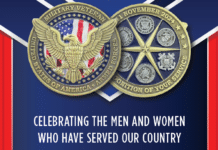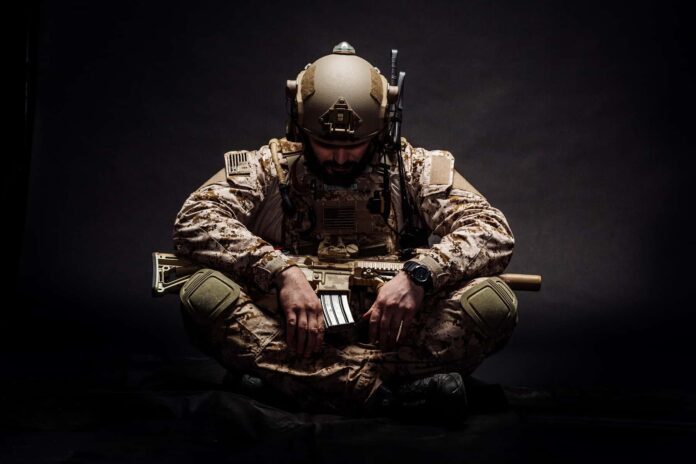Depression statistics among United States Armed Services Veterans are staggering. Veterans suffer high rates of suicide, at almost double the rate of their civilian counterparts (31.8 per 100,000 Veteran suicides vs. 16.1 per 100,000 non-Veteran suicides). Though an estimated 14-16% of Veterans have depression, many never seek support for their mental health. We’ll discuss why this is, how to observe for signs of depression in the Veteran in your life, and how to support them through it.
Why Depression Among Veterans Is Difficult to Observe
Even among the civilian population, depression is difficult to watch for because there are often few if any, physical signs of internal struggle. Depression can go unnoticed by those around the sufferer for months or years. In fact, many families and friends of those who die by suicide express surprise because they weren’t even aware that their loved one was struggling.
Observing depression among the Veteran community can add a layer of difficulty, as the enlisted are often taught to deny their emotions and act stoically as part of their military training. Emotions are often seen as a liability or a weakness, which keeps many Veterans from seeking help when times get challenging. Naturally, this makes it even harder for family and friends to recognize the warning signs of depression.

Warning Signs of Depression Among the Veteran Community
So, how can you identify an invisible disease? There are often indicators if you know what to look out for. Some common signs of depression include the following:
Isolation – Someone suffering from depression will often withdraw from family and friends. Sometimes, the isolation starts gradually, as the individual detaches from social gatherings and engagements they previously enjoyed. This can look like appearing quiet and withdrawn or simply finding excuses not to participate or even show up.
Drugs, alcohol, and addictive behaviors – Often, Veterans with depression will attempt to self-medicate with drugs, alcohol, or other addictive substances. This could also look like overeating, excessive shopping, gambling, or video game playing. Anything done in excess to distract from the depression can be viewed as a warning sign. This is often referred to as “escapism” and can take many forms, even in ways that seem healthy, like gym or fitness.
Messy environment – For many with depression, their physical surroundings often reflect their internal turmoil. This can look like a dirty house, an unwashed car, or an unkempt appearance. Self-care is often neglected during depressive episodes, and you may observe a deterioration in how they present themselves.
Mood changes – Many suffering from depression may exhibit uncharacteristic changes in mood or disposition. This can look like anger, aggression, or irritability. While these emotions may not always seem to be the symptom of depression, they are often used as masks or distractions from depressive symptoms.
Sleep irregularity – Sleeping too much or not enough is often an indicator of depression. Sleep quality may also suffer, and rest cannot be achieved even when desperately needed.
Of course, someone can have chronic or even debilitating depression and still not exhibit any outward symptoms that can be observed. Depression, like all mental health issues, will look different for everyone, but the preceding warning signs can give you a starting point.
How to Help a Veteran with Depression
If you suspect that a Veteran in your life is struggling with depression, sometimes the best thing to do is to ask them about it. Obviously, this will depend on your relationship with them. If you don’t feel close enough to them to start this conversation, maybe broach it with somebody in their life who is closer to them. Depression is a remarkably isolating and lonely mental health issue. Having loved ones reach out and express concern can often be an excellent starting point for recovery. Let the Veteran know that you have some concerns and be there to offer solutions and support.
For someone experiencing depression, individual mental health therapy can be lifesaving. Therapists are trained to walk with someone through their mental health struggles, offer guidance, and provide clinical support. Group therapy is also possible if the Veteran is open to it, and there are support groups around the United States. There are even mental health professionals who are trained and experienced in Veteran care, and many therapists are even Veterans themselves.
Offering to assist a Veteran struggling with depression can look like helping him or her get their life back in order. Often, things fall apart, as previously mentioned, like the house becoming messy or their personal appearance deteriorating. Some examples of activities to do to help your loved one can include:
- Making an appointment with a mental health professional
- Attending a support group for mental health or substance abuse
- Helping them clean their house or car
- Running errands with them or assisting with other necessary activities of daily living
- Cooking healthy meals together or attending the gym with them
- Checking in and seeing how they’re doing on a regular basis
Everyone is different, so your friend or loved one may request specific types of support. Being open to assisting them can be invaluable for Veterans struggling with depression.
Conclusion
If you have a Veteran in your life who you suspect is fighting depression or suicidal thoughts, contact the Veteran Crisis Line by dialing 988 and pressing 1. The Wounded Warrior Project also offers support groups around the United States And more information can be learned on their website. If you happen to be in the San Diego area, contact The Veterans Navigation Center for mental health and substance abuse support, emphasizing supporting Veterans.

About the Author
Scott H. Silverman is a high-profile expert on addiction and recovery, making frequent public and media appearances for the last 40 years. He is the Founder and CEO of Confidential Recovery, a San Diego substance abuse treatment center that specializes in helping Veterans and First Responders get and stay sober. He is also a founder and board member of The Veterans Navigation Center, a San Diego-based organization that helps Veterans transition to civilian life.
All content herein is owned by author exclusively. Expressed opinions are NOT necessarily the views of VNR, authors, affiliates, advertisers, sponsors, partners, technicians, or VT Network. Some content may be satirical in nature.
All images within are full responsibility of the author and NOT VNR.
Read Full Policy Notice - Comment Policy
































